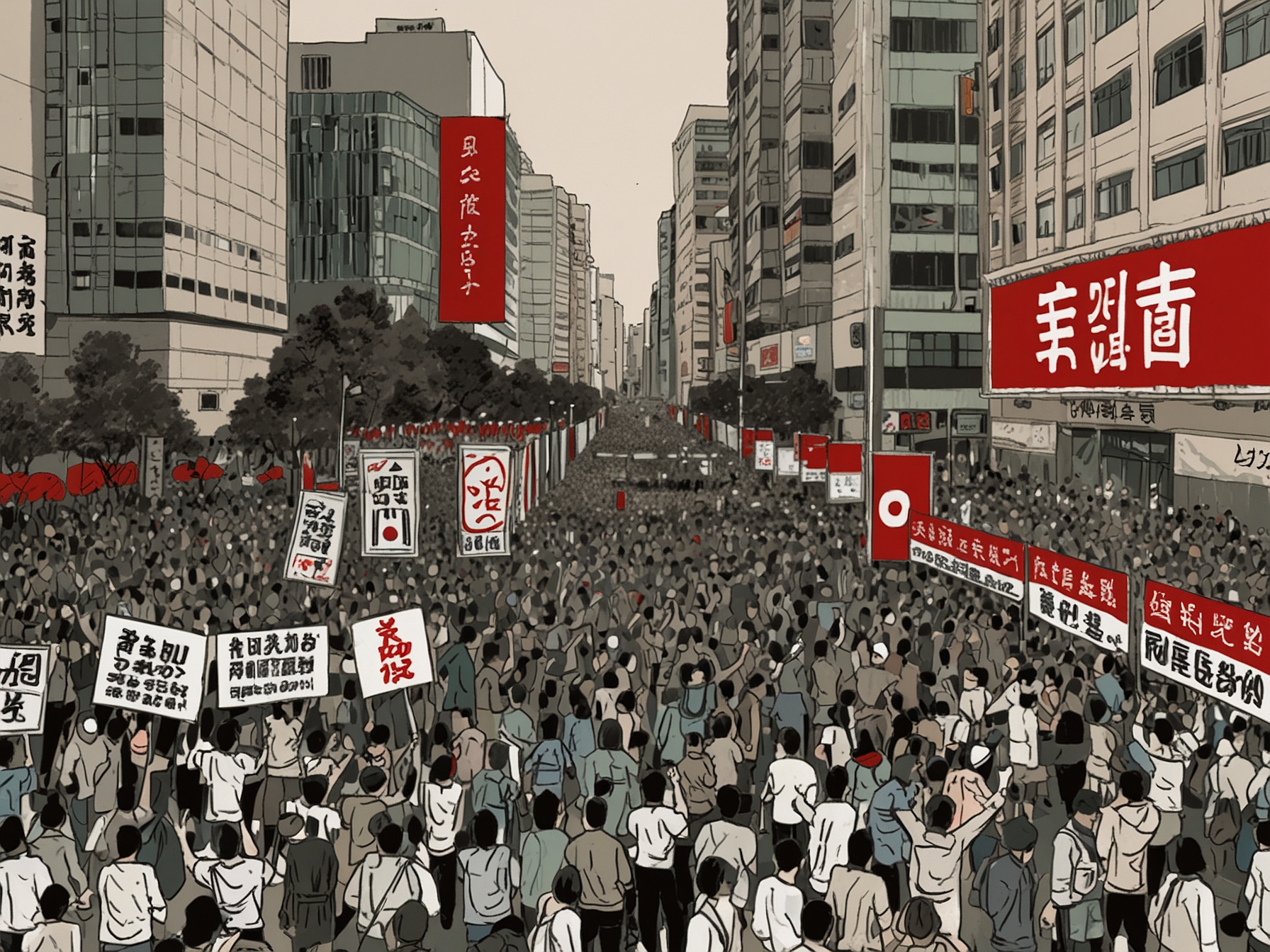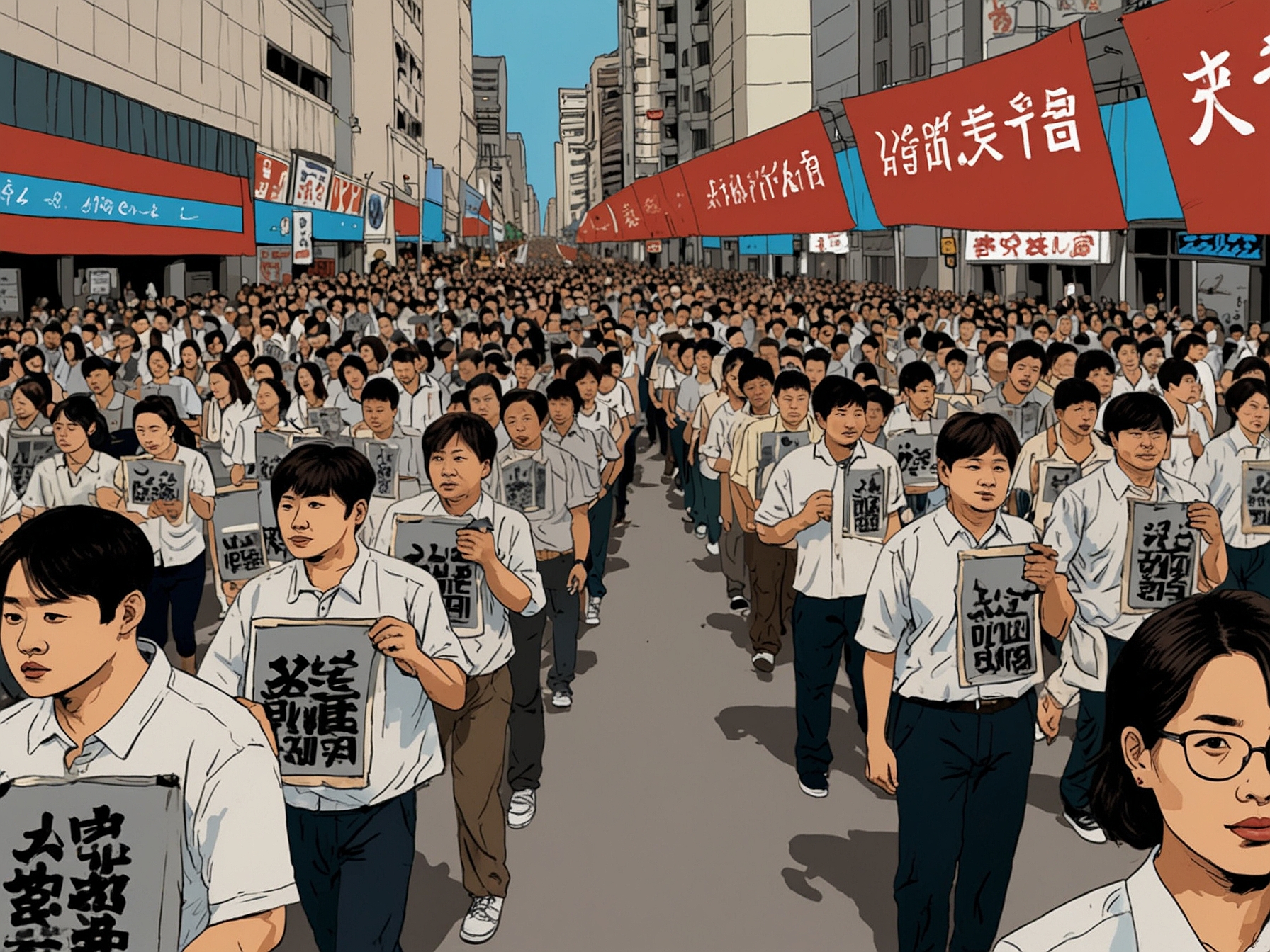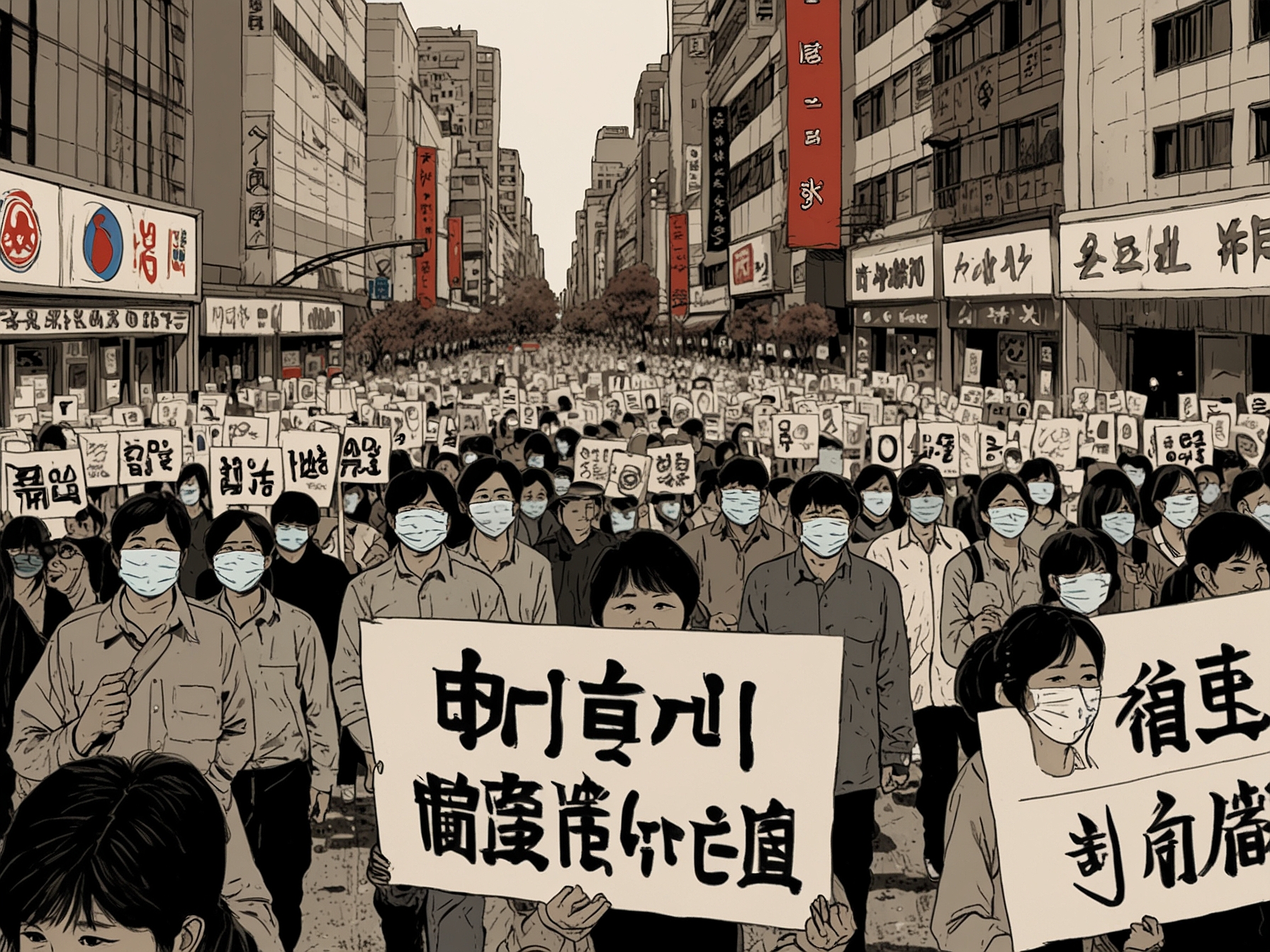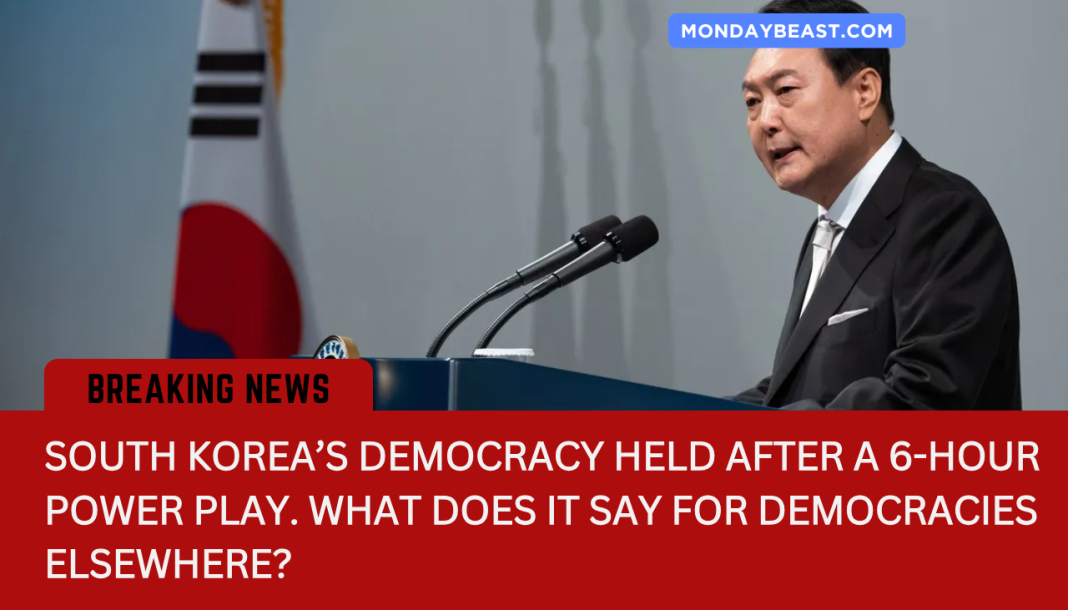Introduction to the Crisis
In an age where democracy seems fragile, South Korea faced a chilling reality. President Yoon Suk Yeol declared martial law, creating tension overnight. Many woke to their country in turmoil. Was this a fleeting moment of panic or a sign of deeper issues? The nation responded swiftly, highlighting the importance of democracy and its resilience.
A Democracy Under Threat
In recent times, democracies have faced increasing challenges. South Korea’s situation stands as a stark reminder. A democratically elected leader shifted towards authoritarianism. This has raised eyebrows and concerns globally.

When Yoon chose to impose military control, he underestimated public resistance. What if similar actions took place in other nations? Would citizens rise up or simply accept the new norm?
Public Outcry and Resistance
During the six-hour ordeal, something remarkable happened. Citizens rallied to protect their democracy. Thousands flooded the streets, urging lawmakers to act. They live-streamed their protests, making their voices heard. This digital age empowered them. It wasn’t just a few politicians; it was an entire populace determined to uphold democratic values.
Were South Koreans invigorated by the spirit of democracy or simply horrified by a hasty power grab? Perhaps a mixture of both, as they stood united against the tide. In moments like these, the fight for democracy reveals its power.
The Role of Technology

The rapid response to Yoon’s actions showcased the role of technology today. Mobile devices enabled rapid communication. People witnessed events unfold in real-time. They organized on social media, leveraging their collective outrage.
As profiles were shared and videos broadcasted, public sentiment shifted. A growing community fueled a sense of urgency. How often do we consider the power of our devices? They can connect us, but they also have the ability to mobilize.
Legislators Take Action
In the heart of the struggle, legislators played a critical role. They took the matters of state into their own hands. As assembly members rushed to meet past midnight, they demonstrated courage. Climbing fences, they embodied determination against tyranny. Can we even imagine that level of commitment within our own political landscape?

Within hours, opposition lawmakers unified and voted against Yoon’s martial law. Was this a paper-thin layer of support, or something deeper? Such decisive actions displayed the health of South Korea’s democratic checks and balances.
Global Implications
As events unfolded, the implications were global. Other nations watched intently. The fragility of democracies everywhere became apparent. If South Korea could face a self-coup, what about others? Are we observing a staggeringly fragile state of global democracy?
What will it take for citizens elsewhere to take a stand? The response from countries like the United States grows increasingly relevant. The looming shadow of Trump’s possible return painted unsettling scenarios. Many voters expressed fears of a shift toward authoritarianism.
Challenges to Democracy
Tom Pepinsky, a political expert, voices essential concerns. He notes how fragile the rule of law can be in polarized settings. South Korea’s democracy is under constant scrutiny. Immense power rests in the hands of the president, raising alarm. What if this is a cautionary tale for all?
Could such power dynamics lead to further turmoil? It paints a disturbing picture that resonates with many democracies.
The Road Ahead
So, what now for South Korea? As opposition pushes for Yoon’s impeachment, we are left wondering. Will the democratic fabric hold, or will this push toward authoritarianism result in lasting damage?
The past still echoes in South Korea, where years of protests dismantled prior regimes. For citizens today, history informs their present. The struggle is ongoing, and the people remain committed.
Conclusion: A Moment of Reflection
South Korea’s recent ordeal is a critical juncture, not just nationally but also globally. The reawakening of democratic values during a perilous time offers hope. It serves as a visibly stark reminder for all democracies. In challenging moments, the spirit of unity can triumph.
Let’s consider our own roles in safeguarding democratic ideals. The world watches, waiting to see how this unfolds. Are we prepared for similar challenges, or will we stand idly by? This moment in South Korea is just one of many in the struggle for democracy worldwide.




